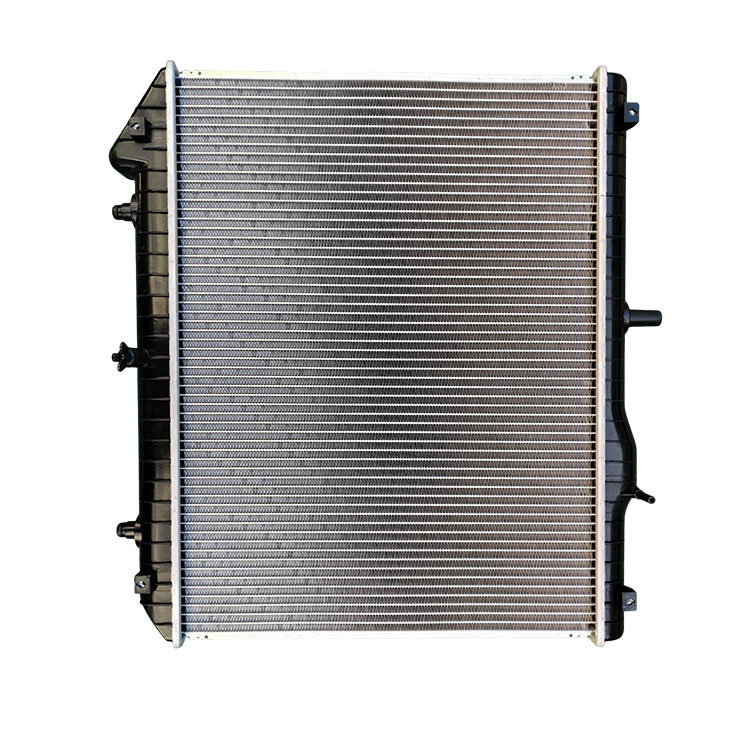Why Is an Auto Radiator Critical for Your Car's Performance?
2024-12-31
When it comes to keeping your car running smoothly, most of us are aware of the importance of regular maintenance—oil changes, tire checks, brake inspections, and so on. But there's one often-overlooked component that plays a critical role in your car’s health: the auto radiator. This essential part of your car’s cooling system prevents overheating, improves engine efficiency, and contributes to the longevity of your vehicle. So, why is an auto radiator so critical for your car’s performance?
In this blog, we'll dive into what an auto radiator is, how it works, why it’s crucial, and how to maintain it to ensure your vehicle runs at its best.
What Is an Auto Radiator?
An auto radiator is a key part of the engine's cooling system. It’s responsible for maintaining the optimal temperature of your car’s engine by dissipating excess heat. The engine generates a tremendous amount of heat during operation, and without a cooling system, that heat would quickly cause engine components to expand and warp, leading to potential breakdowns or long-term damage.
The radiator works by circulating coolant, which absorbs the heat from the engine. This coolant then travels through the radiator’s tubes and fins, where air passing through the grille helps cool it down. The cooled coolant is then pumped back into the engine to absorb more heat, continuing the cycle.
Why Is an Auto Radiator Essential?
1. Prevents Engine Overheating
The primary function of the auto radiator is to regulate engine temperature. As the engine operates, it generates heat. If the engine becomes too hot, it can cause components to wear out prematurely or even seize. Overheating is one of the leading causes of engine damage, and without a properly functioning radiator, your engine could quickly reach dangerous temperatures.
A well-maintained radiator ensures that your engine stays at a safe operating temperature, preventing overheating and the risk of serious damage. This is especially important during hot weather or long drives, when the engine is working harder than usual.
2. Improves Engine Efficiency
When an engine runs too hot, it becomes less efficient. The friction between engine parts increases, and fuel consumption rises. By keeping the engine cool, the radiator helps maintain optimal engine efficiency. This translates to better fuel economy, smoother performance, and a reduction in the chances of overheating during long commutes or extended trips.
Additionally, maintaining the engine temperature ensures that the vehicle’s various systems, such as the transmission, air conditioning, and power steering, continue to operate effectively.
3. Extends Engine Life
The radiator plays a crucial role in extending the life of your engine. By ensuring the engine stays within its optimal temperature range, the radiator helps prevent premature wear and tear on critical engine parts, such as pistons, cylinders, and the head gasket. Overheating can cause these parts to expand, crack, or warp, potentially leading to catastrophic engine failure.
A properly functioning radiator ensures the engine remains cool, allowing it to run smoothly for many years. Regular radiator maintenance can also help you avoid costly repairs or the need for a complete engine replacement.
4. Reduces the Risk of Engine Damage
In addition to overheating, radiators prevent other forms of engine damage, such as corrosion. The coolant in the radiator prevents rust and corrosion from building up inside the engine and radiator components. Over time, coolant can lose its effectiveness, which is why it's important to replace it periodically to ensure continued protection.
A radiator with a buildup of dirt, debris, or corrosion can restrict coolant flow, reduce heat dissipation, and potentially cause engine damage. Regular maintenance, including flushing the radiator and replacing the coolant, can keep your engine running smoothly and prevent costly damage.
How to Maintain Your Auto Radiator
Proper maintenance of your radiator is crucial for your car’s performance. Here are a few tips to keep your radiator in top condition:
1. Check Coolant Levels Regularly
Your car’s coolant keeps the radiator working effectively. If the coolant level is low, it can’t absorb heat as efficiently, leading to overheating. Periodically check the coolant levels and top them off if necessary. Be sure to use the right type of coolant specified in your vehicle’s manual.
2. Inspect for Leaks
Radiators can develop leaks over time, especially if the vehicle has been in an accident or the radiator is older. A leak can cause coolant to escape, reducing the radiator’s effectiveness and increasing the risk of overheating. Regularly inspect the radiator for any visible signs of leaks, such as puddles of coolant under the car or damp spots around the radiator. If you find a leak, have it repaired as soon as possible.
3. Flush the Radiator
Flushing the radiator is an important maintenance task that helps clear out dirt, rust, and debris that may accumulate over time. Over time, contaminants can build up in the coolant, reducing its ability to transfer heat and potentially causing corrosion in the radiator. Flushing the radiator ensures that it continues to operate efficiently and prevents long-term damage.
4. Clean the Radiator Fins
The radiator has fins that allow air to pass through and help cool the coolant. These fins can become clogged with dirt, bugs, and debris, reducing the radiator's ability to dissipate heat. Regularly clean the radiator fins by using compressed air or a soft brush to remove any buildup. This will improve the radiator's cooling efficiency.
5. Replace Old or Damaged Radiators
Over time, radiators can deteriorate, especially if they’ve been exposed to extreme conditions or have been in use for many years. If your radiator shows signs of damage, such as cracks, leaks, or corrosion, it may be time to replace it. A damaged radiator won’t perform efficiently and can lead to engine overheating.
Conclusion
The auto radiator is an often-underestimated but essential component of your vehicle's cooling system. Without it, your car’s engine would overheat, leading to serious damage and costly repairs. By maintaining a well-functioning radiator, you ensure your engine runs efficiently, stays cool, and lasts longer.
From preventing engine overheating to improving fuel efficiency, the radiator plays a vital role in the overall performance of your vehicle. Regular inspections, coolant checks, and radiator flushes can help keep your radiator in top shape and your car running smoothly for years to come.



